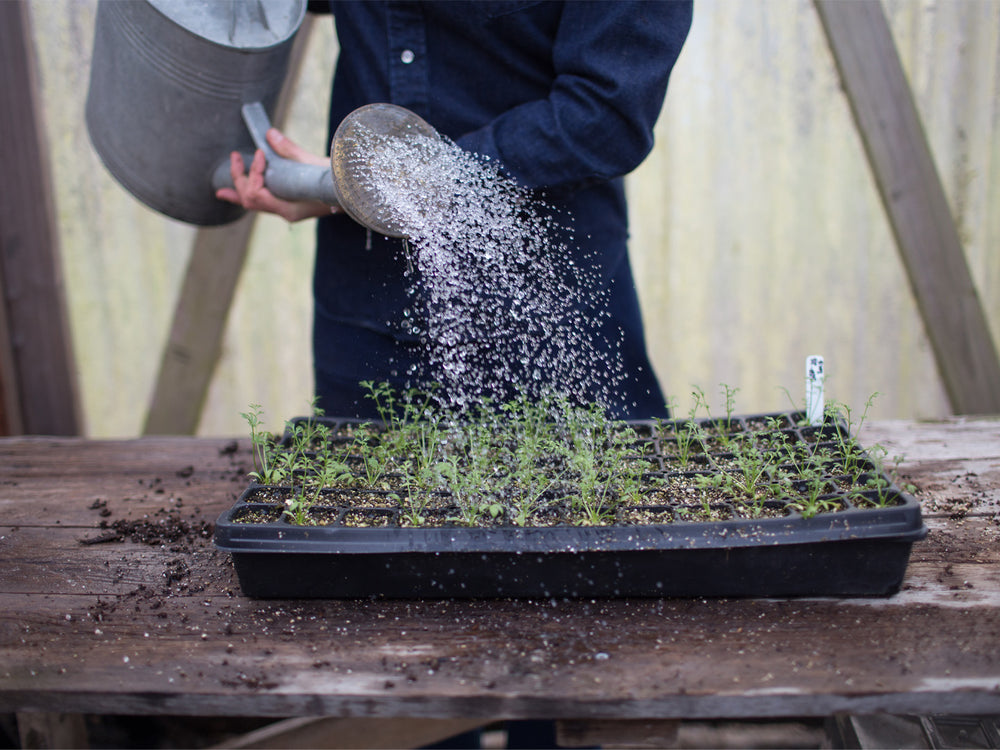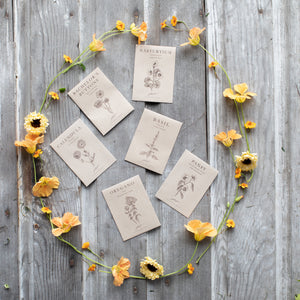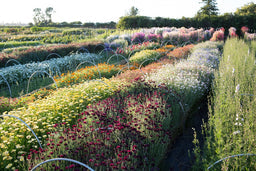Calendula ‘Ivory Princess’
Calendula officinalis
Description
This tall showstopper has giant flowers that are creamy buff-yellow—the color of baby duckling down. The tips of the buttercream petals are serrated and have the tiniest outline of brown, giving a ruffled, lacy effect that beautifully compliments the dark brown eye. This unreal beauty is great for bouquets and wedding work. A must-grow! Calendulas are easy to grow and the fastest flowers to bloom from seed—in just 2 months. Often called English marigolds, the plants are loved by beneficial insects. Petals can be used as fabric dye, are edible, and can be used medicinally in salves.
Details
Height: 36 to 40 in
Site: full sun
Days to maturity: 55 to 60 days
Plant spacing: 9 to 12 in
Pinch: when 8 in tall
Seed Sowing & Growing Notes
Start seed indoors in trays 4 to 6 weeks before last frost; transplant out after all danger of frost has passed. Can be direct-sown and succession-planted every 2 to 3 weeks for continual harvest.
Harvesting/Vase Life
Details
Description
This tall showstopper has giant flowers that are creamy buff-yellow—the color of baby duckling down. The tips of the buttercream petals are serrated and have the tiniest outline of brown, giving a ruffled, lacy effect that beautifully compliments the dark brown eye. This unreal beauty is great for bouquets and wedding work. A must-grow! Calendulas are easy to grow and the fastest flowers to bloom from seed—in just 2 months. Often called English marigolds, the plants are loved by beneficial insects. Petals can be used as fabric dye, are edible, and can be used medicinally in salves.
Details
Height: 36 to 40 in
Site: full sun
Days to maturity: 55 to 60 days
Plant spacing: 9 to 12 in
Pinch: when 8 in tall
Seed Sowing & Growing Notes
Start seed indoors in trays 4 to 6 weeks before last frost; transplant out after all danger of frost has passed. Can be direct-sown and succession-planted every 2 to 3 weeks for continual harvest.
Harvesting/Vase Life
Sources
How to Grow

Winter Mini Course: Seed-Starting 101
Learn how to start flowers from seed in this three-part video series
In this free video series, you’ll learn everything you need to know to successfully start flowers from seed, including all of the necessary supplies, step-by-step instructions, special tips and tricks, and how to create a simple indoor seed-starting area.



















